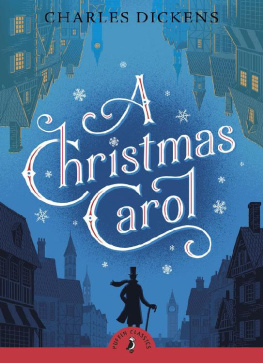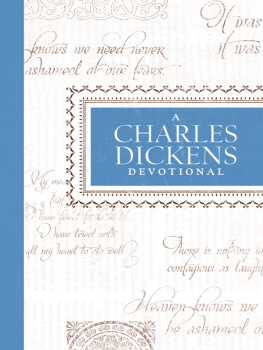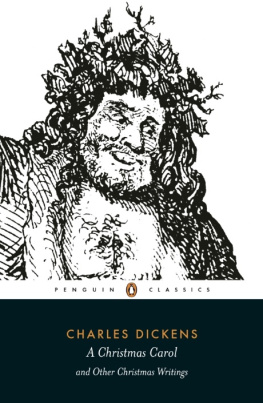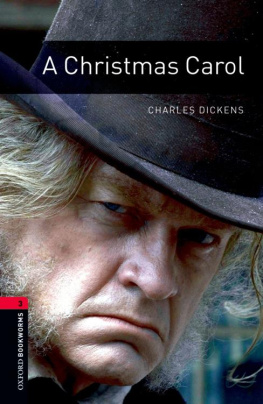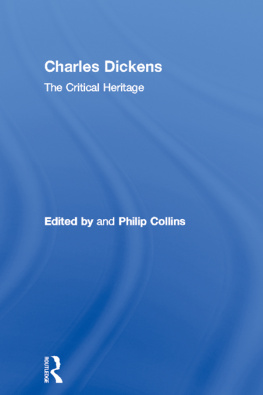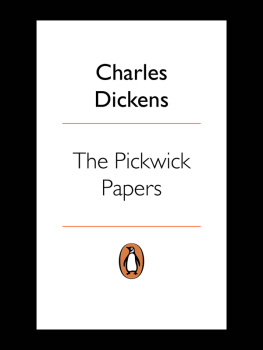Charles Dickens [Dickens - A Christmas Carol (Puffin Classics)
Here you can read online Charles Dickens [Dickens - A Christmas Carol (Puffin Classics) full text of the book (entire story) in english for free. Download pdf and epub, get meaning, cover and reviews about this ebook. year: 2007, publisher: Penguin Books Ltd, genre: Art. Description of the work, (preface) as well as reviews are available. Best literature library LitArk.com created for fans of good reading and offers a wide selection of genres:
Romance novel
Science fiction
Adventure
Detective
Science
History
Home and family
Prose
Art
Politics
Computer
Non-fiction
Religion
Business
Children
Humor
Choose a favorite category and find really read worthwhile books. Enjoy immersion in the world of imagination, feel the emotions of the characters or learn something new for yourself, make an fascinating discovery.
- Book:A Christmas Carol (Puffin Classics)
- Author:
- Publisher:Penguin Books Ltd
- Genre:
- Year:2007
- Rating:5 / 5
- Favourites:Add to favourites
- Your mark:
- 100
- 1
- 2
- 3
- 4
- 5
A Christmas Carol (Puffin Classics): summary, description and annotation
We offer to read an annotation, description, summary or preface (depends on what the author of the book "A Christmas Carol (Puffin Classics)" wrote himself). If you haven't found the necessary information about the book — write in the comments, we will try to find it.
Charles Dickens [Dickens: author's other books
Who wrote A Christmas Carol (Puffin Classics)? Find out the surname, the name of the author of the book and a list of all author's works by series.
A Christmas Carol (Puffin Classics) — read online for free the complete book (whole text) full work
Below is the text of the book, divided by pages. System saving the place of the last page read, allows you to conveniently read the book "A Christmas Carol (Puffin Classics)" online for free, without having to search again every time where you left off. Put a bookmark, and you can go to the page where you finished reading at any time.
Font size:
Interval:
Bookmark:


The cellar-door flew openwith a booming sound, and then he heard the noise much louder, on the floors below; then coming up the stairs; then coming straight towards his door.
Its humbug still! said Scrooge. I wont believe it.
His colour changed though, when, without a pause, it came on through the heavy door, and passed into the room before his eyes. Upon its coming in, the dying flame leaped up, as though it cried, I know him! Marleys Ghost! and fell again.


Anthony Horowitz
I didnt always love Charles Dickens. The first book of his that I read it was Hard Times landed on my desk with a dull thud and a small cloud of dust when I was at school, aged about sixteen, and Im afraid I found it very heavy-going. The industrial setting was grim and depressing. The author seemed to use an awful lot of words to tell his story, and quite a lot of those words had far too many syllables for my liking. There were too many pages. It all felt too much like hard work.
Thats the trouble with Dickens. People think of him as a great writer, which can be a little off-putting. He has a nasty habit of turning up in English Literature exams definitely not an enjoyable experience. And the honest truth is that if you read him too early, you can be turned off him for life which is a great pity.
Because what is really great about Dickens is that he was a wonderful storyteller with ghosts, murderers, lunatics, lovers, revolting villains, dashing heroes, eccentric aunts and lovable rogues leaping across the pages. He created a huge cast of unforgettable characters, many of whom are still famous all over the world. Take Scrooge in this story, for example. Even people who havent read A Christmas Carol know exactly who he is. Like Fagin in Oliver Twist or Oliver himself, he has a life outside the book. If you met him in the street, youd recognize him at once.
I was actually in my late twenties when I first read Dickens purely for pleasure and what a pleasure it was! His best books (and its hard to believe how many brilliant books this one man wrote) are like an entire world that you can lose yourself in. After a while, youre actually glad that theyre so long. You simply dont want them to end.
I agreed to write this introduction to A Christmas Carol because I think its a perfect book to dip into, to get a first taste of Dickens. Its short. Its easy to read. And although you may think you know the story, it may still surprise you. Imagine what it would be like to see yourself dead and to discover that nobody missed you or even cared that youd died. Thats what happens to Scrooge when he meets the Ghost of Christmas Yet To Come. Its one of my favourite parts of the story and you can almost feel the urgency of the last pages as Scrooge wakes up, desperate to make amends, to change the direction of his life. Dickens himself stayed up until three in the morning writing it. He knew, when it was finished, that it was one of his very best works and he was right. The book was a huge commercial success and has been popular ever since.
There have been many film and television versions of A Christmas Carol (my own favourite, Im afraid, was the one with the Muppets) but none of them have quite captured the energy and the passion of the book itself.
So have a go. See what you think. If you dont like it, try it again in two or three years time. And at the very least, the next time you hear someone described as dead as a doornail youll know that it was Charles Dickens who made the phrase popular and youll think, as I do, of Old Marley, coming spookily to life on Scrooges front door.
I have endeavoured in this Ghostly little book, to raise the Ghost of an Idea, which shall not put my readers out of humour with themselves, with each other, with the season, or with me. May it haunt their house pleasantly, and no one wish to lay it.
C. D.
December 1843

Marley was dead: to begin with. There is no doubt whatever about that. The register of his burial was signed by the clergyman, the clerk, the undertaker, and the chief mourner. Scrooge signed it: and Scrooges name was good upon Change, for anything he chose to put his hand to. Old Marley was as dead as a doornail.
Mind! I dont mean to say that I know, of my own knowledge, what there is particularly dead about a doornail. I might have been inclined, myself, to regard a coffin-nail as the deadest piece of ironmongery in the trade. But the wisdom of our ancestors is in the simile; and my unhallowed hands shall not disturb it, or the Countrys done for. You will therefore permit me to repeat, emphatically, that Marley was as dead as a doornail.
Scrooge knew he was dead? Of course he did. How could it be otherwise? Scrooge and he were partners for I dont know how many years. Scrooge was his sole executor, his sole administrator, his sole assign, his sole residuary legatee, his sole friend and sole mourner. And even Scrooge was not so dreadfully cut up by the sad event, but that he was an excellent man of business on the very day of the funeral, and solemnized it with an undoubted bargain.
The mention of Marleys funeral brings me back to the point I started from. There is no doubt that Marley was dead. This must be distinctly understood, or nothing wonderful can come of the story I am going to relate. If we were not perfectly convinced that Hamlets Father died before the play began, there would be nothing more remarkable in his taking a stroll at night, in an easterly wind, upon his own ramparts, than there would be in any other middle-aged gentleman rashly turning out after dark in a breezy spot say Saint Pauls Churchyard for instance literally to astonish his sons weak mind.
Scrooge never painted out Old Marleys name. There it stood, years afterwards, above the warehouse door: Scrooge and Marley. The firm was known as Scrooge and Marley. Sometimes people new to the business called Scrooge Scrooge, and sometimes Marley, but he answered to both names: it was all the same to him.
Oh! but he was a tight-fisted hand at the grindstone, Scrooge! a squeezing, wrenching, grasping, scraping, clutching, covetous old sinner! Hard and sharp as flint, from which no steel had ever struck out generous fire; secret, and self-contained, and solitary as an oyster. The cold within him froze his old features, nipped his pointed nose, shrivelled his cheek, stiffened his gait, made his eyes red, his thin lips blue; and spoke out shrewdly in his grating voice. A frosty rime was on his head, and on his eyebrows, and his wiry chin. He carried his own low temperature always about with him; he iced his office in the dog-days; and didnt thaw it one degree at Christmas.
Font size:
Interval:
Bookmark:
Similar books «A Christmas Carol (Puffin Classics)»
Look at similar books to A Christmas Carol (Puffin Classics). We have selected literature similar in name and meaning in the hope of providing readers with more options to find new, interesting, not yet read works.
Discussion, reviews of the book A Christmas Carol (Puffin Classics) and just readers' own opinions. Leave your comments, write what you think about the work, its meaning or the main characters. Specify what exactly you liked and what you didn't like, and why you think so.

